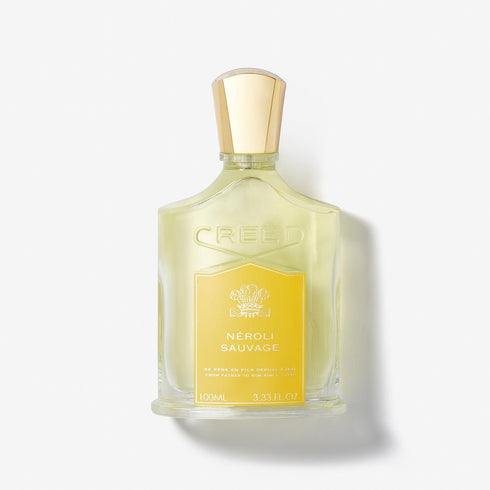- Home
- Creed Neroli Sauvage - Tester - HAUTE Parfums

Creed Neroli Sauvage - Tester - HAUTE Parfums
Creed’s Neroli Sauvage Eau de Parfum is bright, confident and uplifting it is suitable to all ages - giving the wearer charm and elegance with its relaxed and stylish floral-citrus notes. Using many of the most ancient and well-loved ingredients in perfumery, it features dazzling top notes of lemon, bergamot and petit grain which expand into a heart of verbena and orange flower on a tenacious base of ambergris and sandalwood.
Creed's Neroli Sauvage eau de toilette is a symphony of tangy citrus notes including Orange Flower, Bergamot, Petitgrain, Lemon and Grapefruit married to the earthiness of Sandalwood and Ambergris. Fresh and zesty, yet remarkably enduring.
- House of Creed Neroli Sauvage eau de parfum
- Notes: Bergamot, Bitter Orange, Grapefruit, Lemon, Neroli, Verbena, Orange Blossom, Ambergris.
- Original packaging is for reference only and is not included.
- 150 gram (weight)
- RRP £245.00 per 100ml
The lists of ingredients that make up the composition of parfums products are regularly updated. Commonly used ingredients are:
Alcohol ● Parfum (Fragrance) ● Aqua (Water) ● Alpha-isomethyl Ionone ● Benzyl Salicylate ● Limonene ● Linalool ● Ethylhexyl Methoxycinnamate ● Diethylamino Hydroxybenzoyl Hexyl Benzoate ● Citronellol ● Geraniol ● BHT ● Oil Extracts ● Citral ● Benzyl Alcohol ● Benzyl Benzoate ● Eugenol ● Coloring Agents ● Tocopherol ● DPG
The manufacturer is responsible for the ingredients of the product. We recommend checking the list of product ingredients directly on the manufacturer's website due to potential changes. Periodic updates to EU regulations could demand the for manufacturers to re-formulate existing fragrances to meet new regulations.
Be aware that large neck roller bottles may contain polymers to reduce leakage in according to regulatory packaging requirements. Roller bottles should not be transferred into spray bottles.
Allergies or Sensitivities:
If you suffer allergies or sensitivies, and before using a perfume product or the long-term use of fragrances, please check the latest updated list of ingredients from the original manufacturer to be certain that the ingredients are suitable for your personal use as they may differ, be updated or changed with new released batches.
Perfumes can also be used on clothes instead of skin to reduce direct skin contact. However, due to alcohol content or thickening agents, perfumes can have a small negative effect on fabrics:
The (EU) Cosmetics Regulation 1223/2009 lists the 26 most-known allergenic substances, which you can find in the link below:

